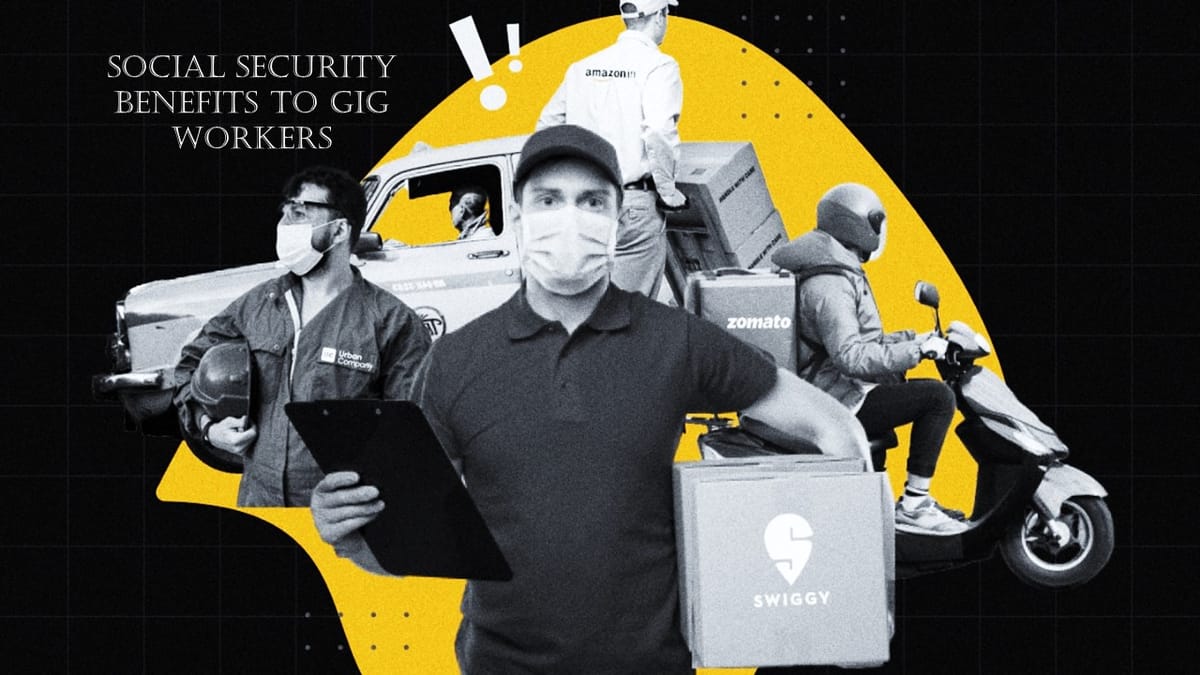Government is requesting that companies like Ola, Uber, Swiggy, Zomato, and Urban Company provide gig workers with social security benefits like life insurance, personal accident insurance, and health insurance.
Reetu | Apr 22, 2023 |

Government urges Firms to offer Social Security benefits to gig workers
According to reports, the government is requesting that companies like Ola, Uber, Swiggy, Zomato, and Urban Company provide gig workers with social security benefits like life insurance, personal accident insurance, and health insurance.
According to one account, the labour ministry discussed this with the platforms. However, the study stated that the problem has yet to be remedied.
“Given that these would be group covers, the cost will not be significant for the platforms, which have seen a significant increase in workers flocking to them, either for part-time jobs or even full-time employment,” the report stated.
A gig worker is someone who works or participates in a work arrangement and earns money from it outside of the usual employer-employee relationship. Gig and platform workers employed by major e-commerce companies such as Uber, Ola, Swiggy, and Zomato are not paid salaries and hence are denied social security benefits such as provident fund, group insurance, and pension.
The action coincides with the government’s push to notify labour rules, which will be critical in providing social insurance to all informal workers in the country. The four labour codes on social security, industrial relations, pay, and Occupational Safety, Health, and Working Conditions (OSH) have already been approved by Parliament, but they will not be implemented until the Centre and states announce the relevant rules, as labour is a concurrent issue.
In addition to the creation of Social Security Funds through contributions from specific aggregators, the Code on Social Security proposes providing life and disability insurance, accident insurance, health and maternity benefits, old age protection, and crèche for gig workers.
According to an International Labour Organisation research from 2021, over 40% of workers on web-based platforms received health insurance, while less than 20% were covered for workplace injury, unemployment, and disability insurance, as well as old-age pensions or retirement benefits. According to the survey, the figures are significantly lower in undeveloped countries.
However, the corporations have identified many challenges, one of which is that workers frequently operate across platforms, making it difficult to provide coverage.
With a dramatic increase in the share of gig economy employees — estimated by Niti Aayog to be more than 1.3% of the active labour force — the government is attempting to guarantee that platforms not only provide social security but also publicly declare it.
In case of any Doubt regarding Membership you can mail us at [email protected]
Join Studycafe's WhatsApp Group or Telegram Channel for Latest Updates on Government Job, Sarkari Naukri, Private Jobs, Income Tax, GST, Companies Act, Judgements and CA, CS, ICWA, and MUCH MORE!"